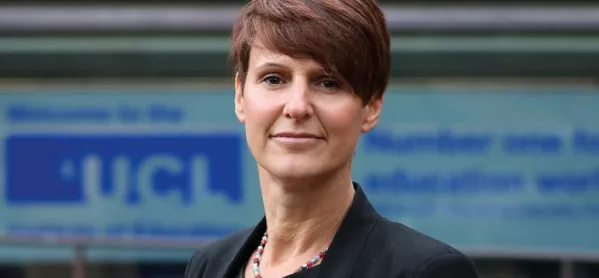Bundling up middle-class norms as “character” is offensive to working-class children, a leading academic has said.
Speaking at a conference in London today, University College London Institute of Education director Becky Francis said that it was “utterly ridiculous” to suggest that working-class children lacked self-reliance or resilience.
“The prevalent assumption is that, as well as resilience and so on, ‘character’ includes the development of expressions of cultural capital, such as knowing it’s important to make eye contact in a job interview,” she told the Nesta Education 2019 conference.
“Yet, in turn, this diverse range of skills, dispositions and cultural capital are problematically bundled together and referred to as character with the offensive connotation that working-class students are somehow immoral and character-deficient, and that, in turn, the private school sector is somehow good at developing character. I think this is really problematic.”
Earlier this month, education secretary Damian Hinds outlined a new government drive to help state schools promote character building, saying that he wanted to “call time” on the phrase “public school confidence” by ensuring that all children were able to develop self-belief.
He added that all pupils should be granted access to activities based on “five foundations for building character”, including sport and volunteering.
Professor Francis said today that she wanted to challenge the idea that someone who did not enjoy sport was thereby lacking in character.
She said: “When talking about self-reliance or resilience, it is utterly ridiculous to say that working-class kids lack those skills when most of them have far more difficult lives than our [middle class] kids’ lives and face far greater challenges that they must overcome every day.
“What we are talking about here are special skills and learnt behaviours that enable kids to progress successfully through a middle-class-dominated system.
“We are talking about cultural capital - known skills and signifiers that are valued by the middle class…In terms of social mobility, it is important that working-class kids know the rules of the game and can access that, but let’s not disguise that as some kind of notion of character.”





